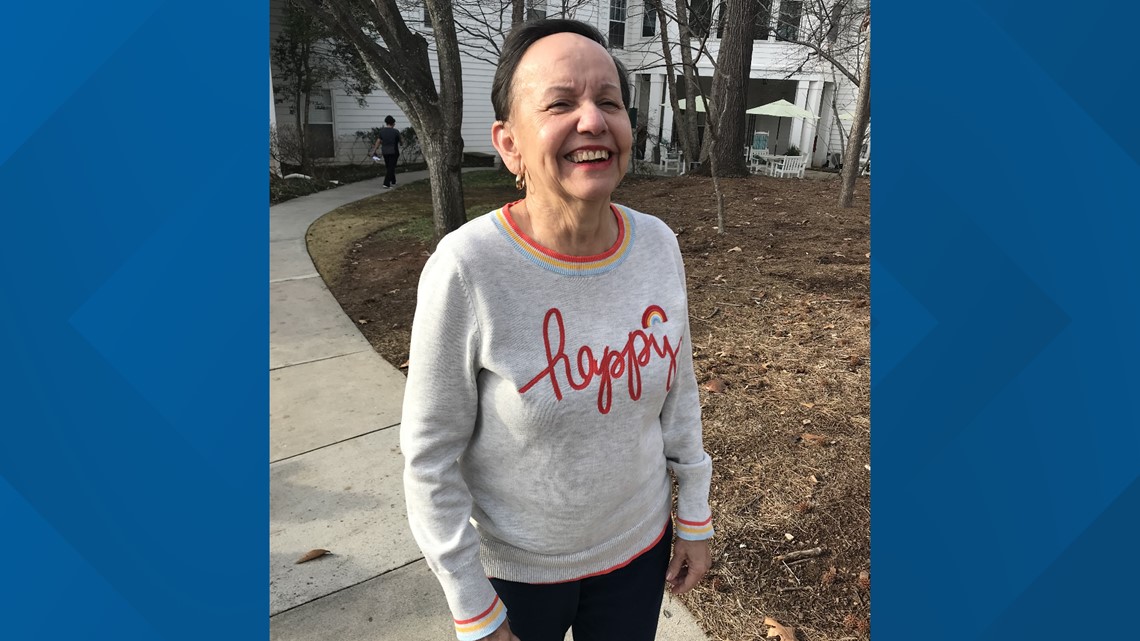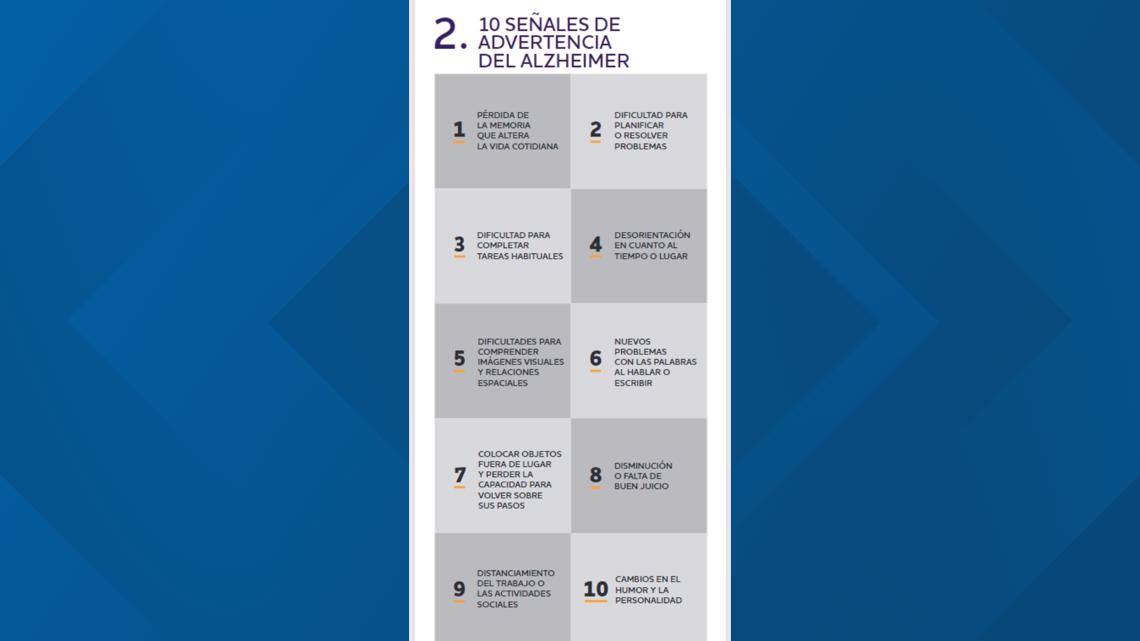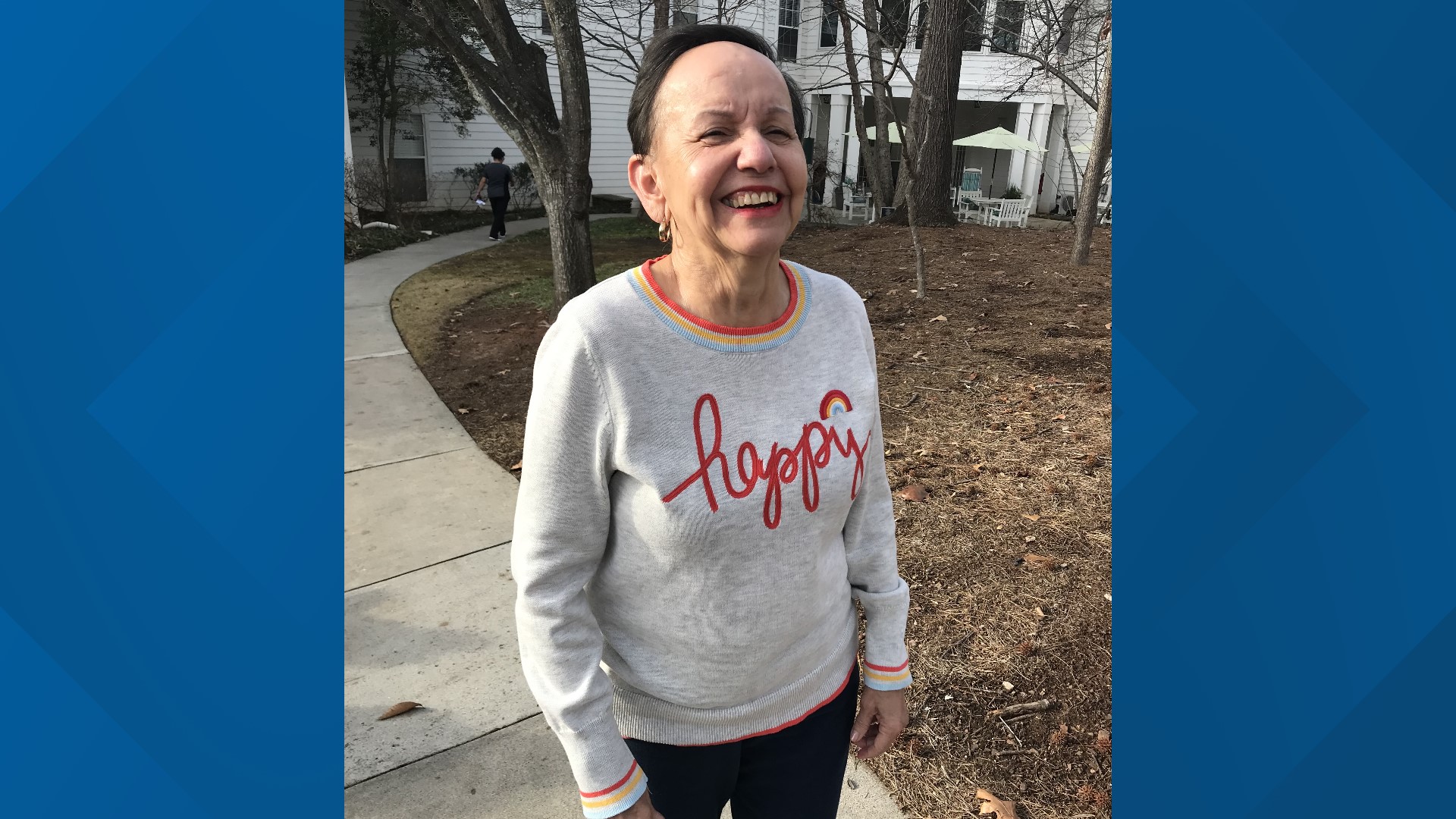ATLANTA — It's a warm day in Atlanta. The sun is out, the birds are chirping. Denise Arribas decides to drive to a park near her home. She brings a photo album and starts scanning through photos from her childhood.
"Look at that smile! She's still so stunning," Arribas said, referring to her mother Ari Acevedo.
She's taken back to the years before she became her mother's caretaker.
"It's hard," she said. "To see my mom every day have that force to wake up and keep on fighting... that's someone who has guts. Just strength."
A few feet from the picnic table she's sitting at, she spots a blue swing.
"I have a photo of my mom on that swing," Arribas said.
That swing took her mother Ari back to years before 2018 when she was diagnosed with Alzheimer's.
"That joy and that youthfulness... Alzheimer's can take a lot of things from her... but not that joy," Arribas said.
Ari is one of 150,000 people who, according to the Alzheimer’s Association are living with this degenerative disease in Georgia.
The organization said Hispanic people, like Ari, are 1.5 times more likely than white people to get dementia.
For Ari, language became the first barrier.
“Most of the care centers are going to have people who speak English," she said. "But English as a second language is going to be the first thing you forget. My mom, even though she had a PhD, and had perfect English until about 5 years ago, now only speaks Spanish and barely understands English. You have a double confusion: confusion because of the illness and confusion because everything is getting lost in translation.”


Nationwide, about 14% of Hispanic people aged 65 and older have Alzheimer's.
Linda Davidson, Executive Director of the Georgia Chapter of the Alzheimer's Association explains why this could be the case.
“Quality of education and exposure, higher rates of poverty in Hispanics, greater exposure to adversity and discrimination. You take all of that together so they’re more affected than anyone else," Davidson said.
Davidson said the 14% is a similar percentage within the state. While it's a tough disease for loved ones and caretakers, she said there is more hope now than we've ever had.
“A drug was just released in the last year that could affect the length you’re in an early stage so that you have more plans and more quality of living before the end, but right now there is no cure but there is more promise coming. We've raised a lot of money for research so that we can find that cure at some point," she said.
Davidson urges people to know the potential early signs of the disease, while Arribas hopes this World Alzheimer's Day people remember to be patient and not judge.
“The core of who she is still there," Arribas said. "I still get to hug and kiss her and she smells like my mom. Although sometimes it frustrates me, I feel like I’m still very lucky to have her.”
The Alzheimer's Association provides help to families and caretakers 24/7. To read more about the early signs of Alzheimer's, click here.
To learn more about the Georgia chapter of the Alzheimer's Association, click here.
Para Español, lea la imagen debajo:



